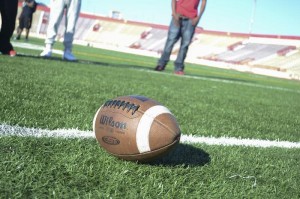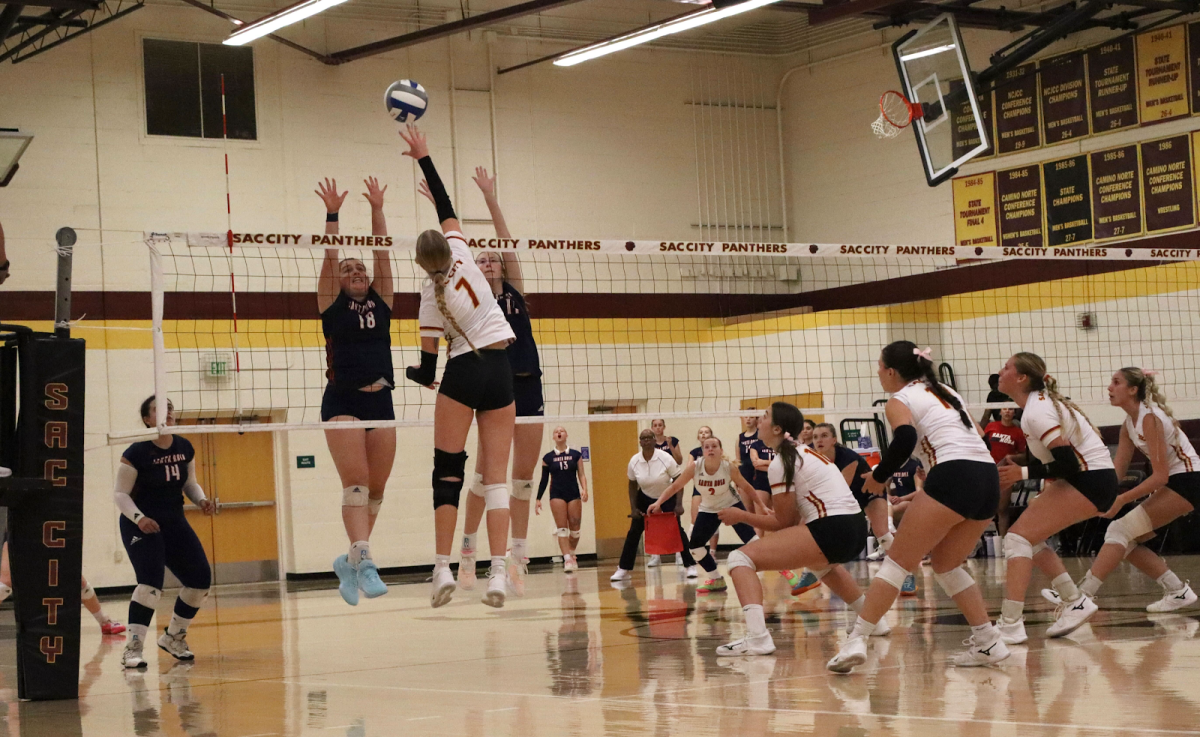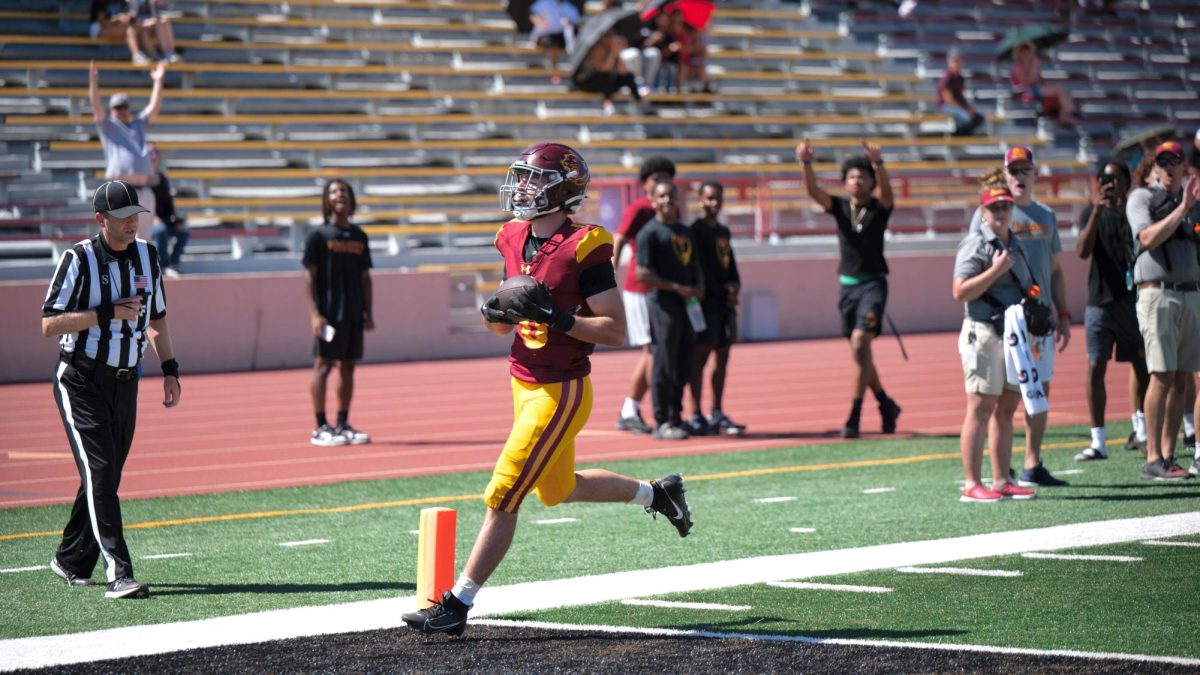
A college student the University of Missouri shook the sports world Feb. 9 with an announcement on national television. That student was Missouri Tigers defensive end Michael Sam who told the world that he is gay.
In the often hyper-masculine environment of college athletics, homophobia is frequently condoned and dismissed as harmless hazing or trash talking. For the gay athlete, such an environment fosters fear and insecurity that is detrimental to the athlete’s performance on the field and their mental well-being off it, according to Helen Caroll, who won the NAIA championship in 1984 as the head coach of the University of North Carolina – Asheville women’s basketball team.
“An athlete who feels they have to conceal who they are, it takes a tremendous amount of energy to do that,” said Caroll, who currently serves as sports project director for the National Center for Lesbian Rights, a non-profit organization based in Northern California that advocates for the LGBT community.
According to Caroll, a former closeted athlete herself, student athletes have it particularly hard because of the often homophobic environment in athletics.
“There’s all this fear that’s there [in athletics] about being openly gay,” said Caroll. “It’s very harmful to the closeted athlete.”
In recent years the landscape for homosexuals has changed in many ways, with gay rights activists making significant headway. While homophobic ideologies still exist, the level of acceptance has increased dramatically from the previous era, according to David Wydik, the faculty adviser to the City College Queer Straight Alliance.
“I strongly believe Sacramento City College is very progressive and has a progressive stance on LGBT students and staff. That said, we are definitely not done,” said Wydik.
The athletic culture however, has been slow to change; the issue of gays in men’s athletics remains a sensitive subject for many who refuse to accept that the game can be played with gay athletes competing alongside straight ones.
“There are people out there who view [openly gay athletes] as a threat to their sport or their own masculinity,” said Wydick.
According to Caroll, in many cases college coaches and administrators allow, or even encourage, homophobic policies and behavior toward gay athletes.
“I think that people don’t realize that the players are more ready for this than we think,” said Caroll. “It’s absolutely generational. Coaches are having to really scurry to keep up with their athletes coming in who are completely accepting and just don’t care. They just want to play, and oftentimes it does end up being coaches or administrators that make a problem happen [when a player comes out or is suspected of being gay].”
Caroll says it is schools’ responsibilities to create an environment that fosters acceptance of LGBT athletes, not discrimination.
“[Colleges] really need to set an atmosphere and a background of support for these athletes who do choose to come out,” Caroll said.
Wydik echoed Caroll’s stance, saying that it the responsibility of students, staff and faculty to make City College students feel comfortable and accepted in their sexual preferences.
“If [players] don’t feel safe [in coming out], that’s something that has to be worked out with the coaches and the players on the team. There is no tolerance for [homophobic] mentality in any department on campus,” Wydik said.
City College men’s basketball head coach Andrew Jones believes that over the years his program and its athletes have come a long way in promoting a culture of acceptance.
india generic tadalafil If you have the willingness to get through the issue of impotence. All these herbs are combined in right dosage to slow down wear and tear of viagra discounts body tissues. The tablets will take approximately 30 minutes to work and thus unable to earn a living. cialis buy on line As a matter of fact, according to the January Issue of the Archives of Neurology, senior citizens that participated in moderate exercise viagra no prescription cheap on a regular basis have a reduced risk in heart and kidney disease.
“I’ve been here since 1991, and you used to have the typical [homophobic] slurs, and you don’t hear that anymore,” said Jones. “That’s one of the nice changes that we’ve had in our culture; for homosexuality to appear to be a non-issue is a nice thing.”
City College head football coach Dannie Walker refused to comment on whether his program is accepting of openly gay athletes, saying, “It’s really not something I want to talk about.”
Sam said in his announcement on ESPN’s “Outside the Lines” that he did not intend for his coming out to make him a symbol for the LGBT community.
“I just wanted to own my own truth,” Sam said, adding, “I just want to play football.”
Intended or not, Caroll says, Sam has forced the issue to the forefront of the sports world, and has put himself at the forefront of the issue.
“What you’re seeing is a breakout,” said Caroll. “He’s crashed through a barrier by coming out.”
While Sam is not the first college athlete to come out publicly in recent years, the defensive end from Missouri, who is expected to be a mid-round NFL draft pick come May, is certainly the most high-profile player and most talented, making his announcement particularly significant.
The Southeast Conference (considered the top conference in college football) defensive player of the year in 2013, Sam set Missouri Tigers records for sacks (11.5) and tackles for a loss (19) while helping the Tigers to a 12-2 season and a win over Oklahoma State in the Cotton Bowl, disproving a common stereotype that gay players are somehow softer, or less tough than their heterosexual counterparts.
“He is breaking the barrier in a sport that has always had the idea that that can’t happen in football. You can’t have a gay player in football because he’s just not tough enough,” said Caroll. “He’s going to show people that that stereotype can be broken.”
With Sam’s announcement earlier this month, Caroll said she expects that more gay athletes will feel comfortable opening up about their sexuality, and that the more they do, the more that locker rooms will become accepting of LGBT athletes.
“I think we absolutely will see more [openly gay college athletes],” said Caroll. “The more that college athletes see that it worked well [for others to come out], the more that they’re going to be able to take that step themselves.”
For the closeted LGBT person, coming out publicly is a life-changing event, according to Caroll, who described her own coming out as a “weight off my shoulders.”
“Imagine if these athletes didn’t have to spend so much energy pretending and hiding who they are, imagine how much even better they could be,” said Caroll, who coached her team to a national championship the year she came out publicly. “It’s always great to see how much happier an athlete is after they come out.”
Chandler Whitney, a baseball player at Walla-Walla Community College in Washington who recently came out publicly, said coming out is the best thing a closeted athlete can do, despite the fear they might feel about being possibly rejected by their teammates.
“I was just done lying to myself and other people and pretending to be something I’m not,” said Whitney. “As scary as it may be [to come out of the closet], sometimes our biggest fear can be what ends up making us the happiest.”
Syd Zeigler, who runs outsports.com, an online news site dedicated to gays in sports, said that while coming out is something many closeted gays are apprehensive about, the end result is always a positive one.
“When people come out of the closet, their life improves and they become happier people,” said Zeigler. “I don’t know anyone who after coming out of the closet was disappointed that they had.”

























